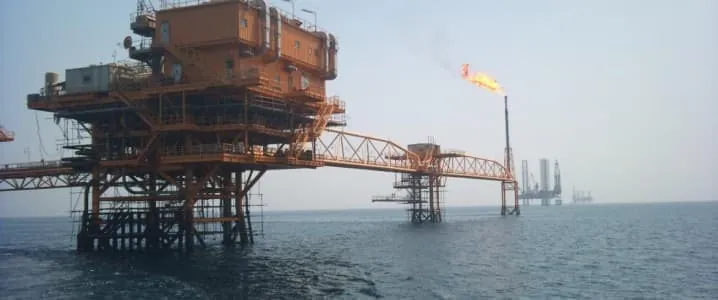
Is the West Ready for a Potential Iranian Assault on Global Oil Markets?
2024-10-15
Author: Kai
Introduction
As the world grapples with the repercussions of the Israel-Hamas War, a pivotal aspect revolves around oil, reminiscent of the geopolitical chessboard during the Russia-Ukraine conflict. The growing tensions in Israel, backed by Iran, pose a significant question: How prepared are Western economies to counter a potential destabilization in the global oil sector? The shadow of the 1973 Oil Crisis looms large, as the dynamics between Israel and its adversaries echo tumultuous events from history.
Historical Context
In the lead-up to the 1973 Oil Crisis, a coalition of Arab states, including Egypt and Syria, launched a surprise attack on Israel during the sacred Jewish holiday of Yom Kippur, just as Hamas executed its operations against Israel in October 2023. The 1973 conflict, initially framed as a battle for territory, rapidly transformed into a broader religious conflict, drawing support from across the Islamic world. This resulted in an oil embargo enforced by OPEC nations, most notably Saudi Arabia, targeting allies of Israel. In the wake of this embargo, oil prices skyrocketed, leading to a global economic downturn that profoundly affected Western countries reliant on oil imports.
Current Dynamics
Fast forward to the present, and Iran has called for a similar embargo against nations supporting Israel. However, this call has not gathered momentum, largely due to the influence of China. The Chinese economy, which has depended on oil imports and the stability of Western markets, stands to face dire consequences should oil prices surge dramatically. Reports suggest that if Brent crude surpasses $90-95 per barrel for an extended period, it could create economic chaos within China.
Moreover, the U.S. has exerted pressure on China to discourage any price-spiking embargo, as the ramifications of such actions could be reciprocally disastrous for both nations.
Iran's Strategies
Nevertheless, Iran has alternative strategies at its disposal to disrupt global oil markets. Historically, Iran has leveraged its influence over the Houthis in Yemen to launch attacks on Saudi oil infrastructures — a notable instance being the strikes on Saudi facilities in September 2019 which halved the nation's oil production. Despite this, the current geopolitical environment, characterized by a recent thaw in relations between Iran and Saudi Arabia, complicates the likelihood of such maneuvers. Additionally, heightened maritime security and cautious navigation by major oil companies have mitigated attacks in vital regions like the Red Sea.
Potential Consequences
Should Iran escalate its activities, particularly targeting the Strait of Hormuz—a crucial chokepoint through which one-third of global oil supplies transit—the consequences could be severe. The Strait's limited width makes it vulnerable to disruptions, putting immense pressure on world oil prices if tensions flare.
Western Countermeasures
In the face of these threats, the West does retain tools to counterbalance a potential oil supply crisis. The U.S. Strategic Petroleum Reserve currently holds approximately 383 million barrels, which can be leveraged in emergencies. Additionally, member states of the International Energy Agency hold around 1.2 billion barrels collectively, which can be tapped in response to supply interruptions.
Forecasts and Future Outlook
Recent forecasts convey the gravity of potential disruptions, indicating that a slight reduction in oil supply could lead to price increases of 3-13%. In severe scenarios, such as a loss of 6-8 million barrels per day, oil prices could soar by up to 75%. The interplay of these factors suggests that the West must remain vigilant as the situation in the Middle East evolves, navigating a complex landscape where oil supplies and geopolitical tensions intersect.
Conclusion
As tensions continue to rise, the global oil market stands at a precarious intersection, and the world's economic stability could hinge on how effectively the West responds to potential Iranian sabotage. The stakes have never been higher—will the West rise to the challenge, or is a crisis on the horizon? Stay tuned as we monitor these developments closely.

 Brasil (PT)
Brasil (PT)
 Canada (EN)
Canada (EN)
 Chile (ES)
Chile (ES)
 España (ES)
España (ES)
 France (FR)
France (FR)
 Hong Kong (EN)
Hong Kong (EN)
 Italia (IT)
Italia (IT)
 日本 (JA)
日本 (JA)
 Magyarország (HU)
Magyarország (HU)
 Norge (NO)
Norge (NO)
 Polska (PL)
Polska (PL)
 Schweiz (DE)
Schweiz (DE)
 Singapore (EN)
Singapore (EN)
 Sverige (SV)
Sverige (SV)
 Suomi (FI)
Suomi (FI)
 Türkiye (TR)
Türkiye (TR)